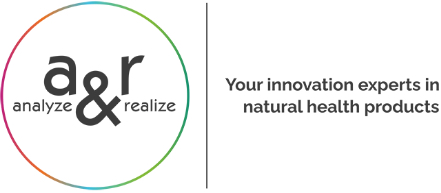
From 30th June to 1st July, a&r attended the conference “Super(?)foods and Supplements – Risky or Healthy?” jointly organized by the German Federal Institute for Risk Assessment (BfR) and German Federal Office of Consumer Protection and Food Safety (BVL). This event brought together numerous representatives from government, academia, and research to discuss the current status of superfoods and food supplements.
During the conference, it was repeatedly emphasized that there is no accepted uniform definition for superfoods. In general, ‘superfoods’ are thought to provide benefits to health and well-being due to their higher amounts of vitamins, minerals and antioxidants, similar to food supplements.
The term is often used in the context of marketing to convince consumers of the health benefits, disregarding safety-related effects on human health. Therefore, the Belgian authority considers the term ‘superfood’ as an unspecific health claim that needs to be accompanied by a specific authorized health claim.
In line with the healthy lifestyle trend, the market for superfoods and food supplements is constantly growing as more consumers are looking for healthy beneficial foodstuffs. However, an online survey of the public’s understanding of superfood revealed that the consumers’ perception is often inadequate or simply wrong. Still, 70% of the respondents were aware of the term ‘superfood’. While the population generally has a positive attitude toward superfoods, they are unaware of the potential adverse health effects. Many of the respondents even stated that they believed the positive effects of superfoods were scientifically proven. This result suggests that the term ‘superfoods’ is regularly shaped by the marketing industry.
Despite the overall principle in food legislation that food must be safe, it cannot be excluded that some products on the market may pose a risk to consumers. This risk is particularly high with dubious providers on the Internet. Numerous internet stores offer an infinite variety of products that are advertised with diverse health benefits.
But whether these promises are really kept is hard to track. For this reason, the ‘G@ZIELT’ initiative was launched by the BVL in 2013, which is dedicated to monitoring online commerce. Within the scope of G@ZIELT, comprehensive product searches are carried out, e.g. on notifications in the European Rapid Alert System for Food and Feed (RASFF) and other risk-based control programs. Government officials buy the products anonymously on the Internet to use as evidence. This program is not only available in Germany, but throughout Europe, where each country searches Internet pages in their respective national language.
The initial question of the conference – if superfoods are healthy or risky – could not be answered as it depends on several aspects. The wide range of superfoods provides numerous health effects. At the same time, health risks cannot be excluded due to high doses of contaminants or safety-relevant ingredients contained. From a regulatory perspective, many foods that are labeled as superfoods, especially when from foreign countries (‘superfruits’), are considered novel food, which require a pre-market authorization approving that they do not pose a safety risk to human health. In case you need advice on the regulatory compliance of your superfood, help in developing a claim strategy, or if you are struggling with a novel food application just contact us, our experts will help you.
